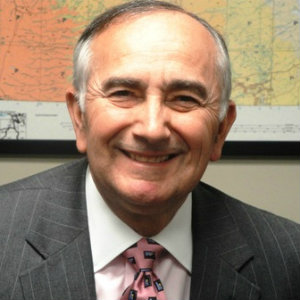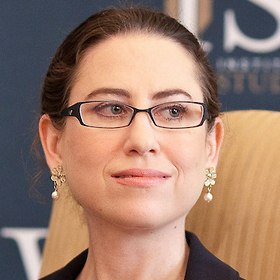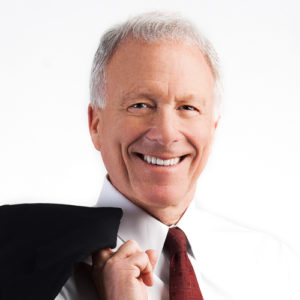War Studies Program
Learn the theory, practice, organization, and control of war and military forces.
Summer 2015
Washington, DC
This War Studies Advanced Program will explore the U.S. Army’s transition from conscription to an all-volunteer force after Vietnam. The course aims to demonstrate the visionary nature of the all-volunteer force and the complex, systemic requirements for changing a large institution.
War Studies Advanced Programs are open only to alumni of the basic War Studies course. These sessions are offered in the winter and summer, and focus either on a national security challenge or on a historical conflict. Learn more about the War Studies Program.
Image courtesy U.S. Army
Fred Kagan on how the Army learns

LTG James M. Dubik (U.S. Army, Ret.) is a Senior Fellow at the Institute for the Study of War and a Professor at Georgetown University’s Security Studies Program. General Dubik has extensive operational experience in Iraq, Afghanistan, Japan, Korea, Thailand, Bosnia, Haiti, Panama, Honduras, and in many NATO countries.

LTG James M. Dubik (U.S. Army, Ret.) is a Senior Fellow at the Institute for the Study of War and a Professor at Georgetown University’s Security Studies Program. General Dubik has extensive operational experience in Iraq, Afghanistan, Japan, Korea, Thailand, Bosnia, Haiti, Panama, Honduras, and in many NATO countries.
His last job on active duty was as Commanding General of the Multinational Security Transition Command-Iraq (MNSTC-I) and the NATO Training Mission-Iraq during the Surge of 2007–2008. He is a member of the U.S. Army Ranger Hall of Fame and a distinguished member of the U.S. Army 75th Ranger Regiment.
General Dubik taught Philosophy at West Point and Campaign Theory and Practice at the U.S. Army School of Advanced Military Studies, Fort Leavenworth, Kansas. He has completed an MIT fellowship program for national security studies as well as executive programs in national security at Harvard’s JFK School of Government and Syracuse University’s Maxwell School of Citizenship and Public Affairs. He is the author, most recently, of Just War Reconsidered: Strategy, Ethics, and Theory.
He holds a Bachelor’s Degree in Philosophy from Gannon University, Erie, Pennsylvania; a Masters in Military Arts and Sciences from the Army Command and General Staff College, Fort Leavenworth, Kansas; and a Ph.D. in Philosophy from the Johns Hopkins University.

Frederick W. Kagan is a Senior Instructor with the Hertog War Studies Program at the Institute for the Study of War. The author of the 2007 report “Choosing Victory: A Plan for Success in Iraq,” he is one of the intellectual architects of the successful “surge” strategy in Iraq. He is the director of AEI’s Critical Threats Project.

Frederick W. Kagan is a Senior Instructor with the Hertog War Studies Program at the Institute for the Study of War. The author of the 2007 report “Choosing Victory: A Plan for Success in Iraq,” he is one of the intellectual architects of the successful “surge” strategy in Iraq. He is the Robert H. Malott Chair and Director of the Critical Threats Project at the American Enterprise Institute (AEI).
In 2009, he served in Kabul, Afghanistan, as part of General Stanley McChrystal’s strategic assessment team, and he returned to Afghanistan in 2010, 2011, and 2012 to conduct research for Generals David Petraeus and John Allen. In July 2011, Chairman of the Joint Chiefs of Staff Admiral Mike Mullen awarded him the Distinguished Public Service Award, the highest honor the Chairman can present to civilians who do not work for the Department of Defense, for his volunteer service in Afghanistan.
He is coauthor of the report Defining Success in Afghanistan (AEI and the Institute for the Study of War, 2010) and author of the series of reports Choosing Victory (AEI), which recommended and monitored the US military surge in Iraq. His most recent book is Lessons for a Long War: How America Can Win on New Battlefields (AEI Press, 2010, with Thomas Donnelly). Previously an associate professor of military history at West Point, Dr. Kagan is a contributing editor at the Weekly Standard and has written for Foreign Affairs, the Wall Street Journal, the Washington Post, the Los Angeles Times, and other periodicals.
He holds a Ph.D. from Yale University in Russian and Soviet military history.

Kimberly Kagan is a Senior Instructor with the Hertog War Studies Program and founder and president of the Institute for the Study of War. She is a military historian who has taught at the U.S. Military Academy at West Point, Yale, Georgetown, and American University.

Kimberly Kagan is a Senior Instructor with the Hertog War Studies Program and founder and president of the Institute for the Study of War. She is a military historian who has taught at the U.S. Military Academy at West Point, Yale, Georgetown, and American University.
Dr. Kagan served in Kabul for seventeen months from 2010 to 2012 working for commanders of the International Security Assistance Force, General David H. Petraeus and subsequently General John Allen. Admiral Mike Mullen, as Chairman of the Joint Chiefs of Staff, recognized Dr. Kagan for this deployment as a volunteer with the Distinguished Public Service Award, the highest honor the Chairman can present to civilians who do not work for the Department of Defense.
Dr. Kagan previously served as a member of General Stanley McChrystal’s strategic assessment team, comprised of civilian experts, during his campaign review in June and July 2009. She conducted many regular battlefield circulations of Iraq between May 2007 and April 2010 while General Petraeus and General Raymond T. Odierno served as the MNF-I Commanding General.
Dr. Kagan held an Olin Postdoctoral Fellowship in Military History at Yale International Security Studies in 2004 to 2005 and was a National Security Fellow at Harvard’s Olin Institute for Strategic Studies in 2002 to 2003. She received her B.A. in Classical Civilization and her Ph.D. in History from Yale University.
Readings:
Topics:
Readings:
Topics:
Watch:
Readings:
H. R. McMaster
H. R. McMaster is the Fouad and Michelle Ajami Senior Fellow at the Hoover Institution, Stanford University. Previously, he served as the 26th assistant to the president for National Security Affairs and as a commissioned officer in the United States Army for 34 years before retiring as a Lieutenant General. He is author of Battlegrounds: The Fight to Defend the Free World.

James M. Dubik

Frederick W. Kagan

Kimberly Kagan

Eric S. Edelman
Eric S. Edelman is a Counselor at the Center for Strategic and Budgetary Assessments and the Roger Hertog Distinguished Practitioner-in-Residence at the Philip Merrill Center for Strategic Studies at Johns Hopkins. He has served as U.S. ambassador to the Republics of Finland and Turkey.

Lewis Libby
Lewis Libby is Senior Vice President of Hudson Institute. Before joining Hudson, Libby held several high level positions in the federal government related to his current work on national security and homeland security affairs.

Paul Wolfowitz
Paul Wolfowitz is a scholar at the American Enterprise Institute. He spent more than three decades in public service and higher education. Most recently, he served as president of the World Bank and deputy secretary of defense.